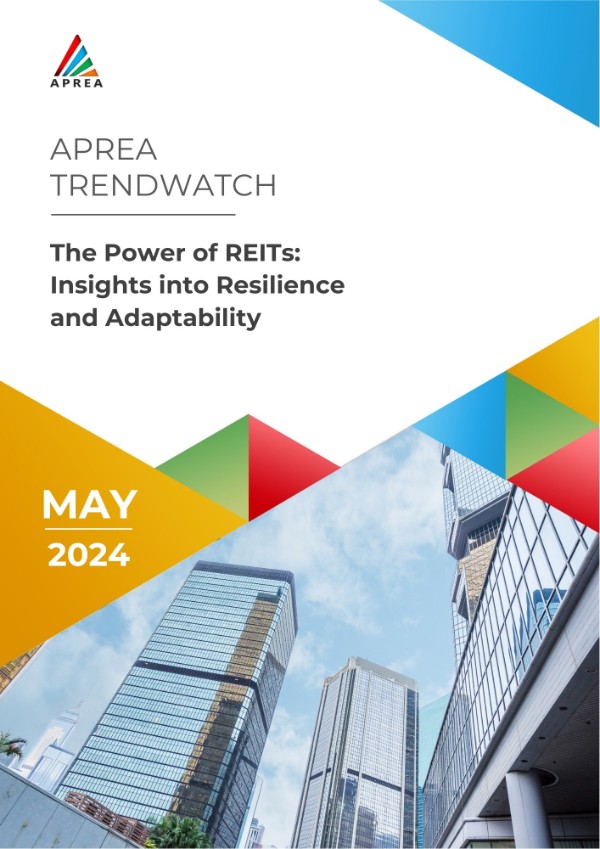While activity remains limited in Australia amid delayed rate cuts, some buyers are returning to the retail sector now that pricing has been reset. The hospitality and living sectors are also attracting interest. H2 2024 will be the optimal buying window as some sellers expect the rate cute cycle to arrive by year’s end.
In Hong Kong SAR, the relaxation of LTV ratios for commercial real estate investment has improved sellers’ confidence and liquidity, leading to fewer discounted and distressed opportunities. More investors are looking at niche sectors such as student housing and data centres as the office market remains under repricing pressure.
Investment volume in Japan was supported by J-REITs and domestic property firms in Q1 2024. However, activity by foreign buyers weakened amid high interest rates globally. Interest in prime offices and hotels remains strong but investors are becoming more selective towards the residential sector.
Korea continues to see improved market sentiment on the back of easing lending rates. Positive carry is expected to occur by the end of 2024 as yields continue to expand and the cost of finance trends down.
This report was originally published in https://www.cbre.com/insights/figures/asia-pacific-investment-trends-q1-2024
Download the Report Read MoreCBRE’s Asia Pacific view on the Global Tech Talent Guidebook explores:
This report was originally published in https://www.cbre.com/insights/viewpoints/global-tech-talent-guidebook-2024-asia-pacific-view
Download the Report Read MoreTitled “Champion our Ecosystem”, Champion REIT’s Sustainability Report 2023 illustrates a collaborative endeavor that focuses on establishing a value-added network around stakeholders through sustainable performances in line with its 2030 ESG Targets and 2045 Net Zero Commitment.
The report is structured according to local and international regulations and frameworks, including Global Reporting Initiative (GRI) and Task Force on Climate-related Financial Disclosures (TCFD) with independent assurance. In its pursuit of higher standard of information transparency, the report further strengthens its climate-related information in accordance with the International Sustainability Standard Board's (ISSB’s) IFRS S2 Climate-related Disclosures.
Download the Report Read MoreOur latest issue of APREA TrendWatch examines the REIT landscape, focusing on insights from the APREA-SGX Global REIT Roundtable.
Ankur Gupta of Brookfield highlighted the resilience and importance of REITs in diversified global portfolios, emphasizing their strong fundamentals and ability to adapt to changing market conditions. He shared the evolution of REITs from niche assets to mainstream sectors, their low volatility, and their challenges, including competition from private funds and regulatory constraints.
We also explored regional perspectives, with Naoki Suzuki of KJR Management and Sanjeev Dasgupta of CapitaLand Investment (India) and CapitaLand India Trust discussing favorable investment climates in Japan and India, respectively, driven by strong rental growth and strategic investments in sectors like data centers and life sciences.

Singapore is one of the few APAC markets with a full ‘end-to-end’ life sciences value chain that comprises manufacturing, R&D, sales & logistics. Bolstered by supportive government policies, biomedical manufacturing has been the fastest growing among various manufacturing sectors. Strong venture capital funding and a vibrant life sciences startup ecosystem has also accelerated R&D, which has led to stronger demand for labs and expansion of manufacturing production capacity.
To date, Singapore has cultivated life sciences growth through a network of vibrant and strategically located clusters, such as Biopolis, Singapore Science Park, Tuas Biomedical Park and Kallang, giving occupiers a wide variety of options.
Although life sciences properties ranked top among preferred alternative assets for investment, such investible stock remains limited in Singapore. This paper highlights various key strategies in which investors can access the growth of this sector.
This report was originally published in https://www.cbre.com.sg/insights/reports/life-sciences-real-estate-an-emerging-asset-class-in-singapore
Download the Report Read More